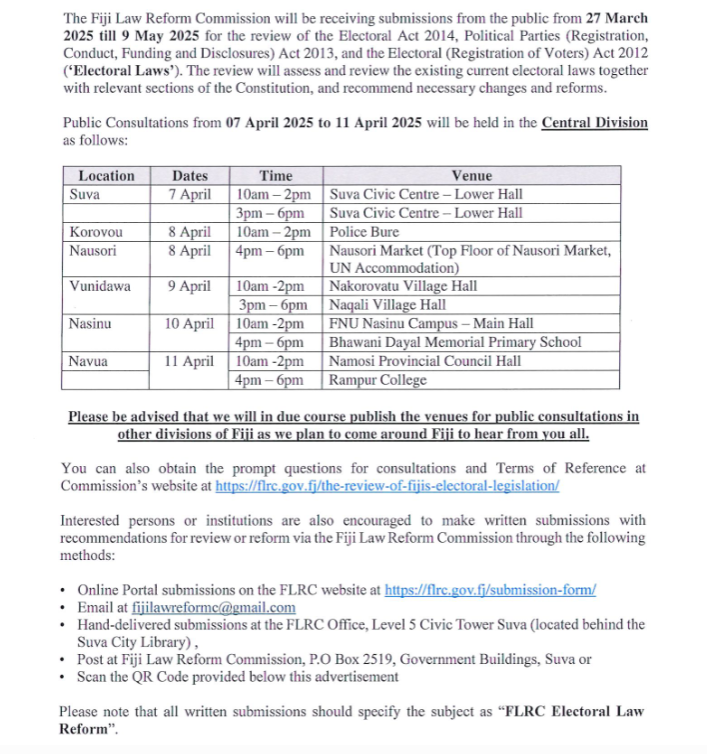Electoral analyst and Dialogue Fiji Executive Director Nilesh Lal has dismissed the idea that compulsory voting would increase voter turnout in Fiji, arguing that historical data shows otherwise — as national consultations on electoral law reform get off to a slow start.
Speaking during the first day of consultations in Suva, Lal pointed out that the highest voter turnout in Fiji’s history — 84.1% — was recorded in 2014 under a voluntary voting system. In contrast, turnout was lower in 2006, when voting was compulsory.
“If you look at Fiji’s history, that argument doesn’t hold water,” Lal said. “The highest voter turnout in Fiji’s history was recorded in 2014 – 84.1%. The lowest voter turnout was recorded in 2006. In 2006, we had compulsory voting; in 2014, we had voluntary voting.
“Voter apathy cannot be resolved by making voting compulsory.”
SODELPA General Secretary Viliame Takayawa suggested the idea, arguing that compulsory voting would “ensure full democratic participation and legitimacy of outcomes.”
National Federation Party representative Priscilla Singh also voiced support for the move, saying, “I strongly believe that voting should be mandatory because we have a lot of people that sit as armchair critics that criticising the government, criticising the work that has been done. I believe that if you want to contribute or say something about any government that gets in, then you need to vote.”
But questions around voter engagement have taken on new urgency following low turnout at the consultation sessions.
According to the Fiji Times, only a handful of people attended the session held at Korovou Police Station Bure yesterday.
Commission chair Daniel Fatiaki expressed concern about the low turnout, urging more people to attend the upcoming sessions. Today, the commissioners will be in Vunidawa.

Consultations will continue across the country in the coming weeks.
Related Articles:
Changes to Fiji Electoral Laws, Code of Conduct, and Transparency Measures Expected in 2025
Fiji Launches Public Consultations on Electoral Reform
‘It’s a Hard Ask for Women to Get In’: Calls for Gender Quotas Dominate Electoral Law Submissions




